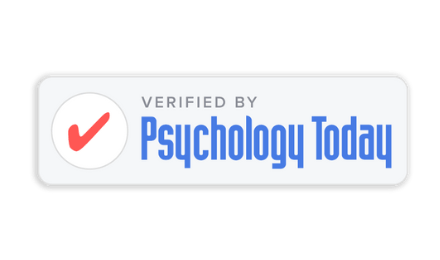Navigating through relationships can be a rollercoaster ride. When you add an anxious attachment style to the mix, it can often feel like you’re trying to steer a ship through a storm without a compass. If you’ve ever felt like this, you’re not alone, and we’re here to help guide you through the choppy waters of anxious attachment in relationships.
Anxious attachment is a type of relational approach that can develop in childhood as a response to inconsistent caregiving. It often results in a deep-seated fear of rejection or abandonment and can make relationships feel like a minefield. Those with an anxious attachment style may find themselves constantly seeking reassurance, feeling insecure, and often overthinking their partner’s actions or words.
But here’s the good news: understanding your attachment style and its effects on your relationships is the first step towards navigating these complexities. It’s like finally finding that compass you’ve been searching for. We’ll explore the intricacies of an anxious attachment style, providing insights and advice on managing its challenges and enhancing the quality of your relationships.
Whether you’re someone with an anxious attachment style or a partner trying to understand and support a loved one, this guide is for you.
Defining Anxious Attachment Style: Origins and Manifestations
Anxious attachment style originates in early childhood and significantly influences adult relationships, often marked by heightened emotions, insecurities, and a strong craving for closeness. Common behaviours and thought patterns associated with anxious attachment include:
1. Fear of abandonment: Individuals with an anxious attachment style may have an underlying fear of being left by their partners, causing them to become overly clingy or demanding in their relationships.
2. Heightened sensitivity to cues: Those with an anxious attachment may be hyper-aware of perceived cues or signals that suggest their partner is withdrawing or distancing themselves, leading to increased anxiety and relationship stress.
3. High need for reassurance: Anxious attachment often results in a strong need for emotional support and validation, causing individuals to seek constant reassurance from their partner regarding their love and commitment.
4. Heightened emotional reactions: Anxious attachment can exacerbate emotions within relationships, leading to frequent feelings of jealousy, insecurity, and a fear of rejection.
Challenges of Anxious Attachment Style in Romantic Relationships
An anxious attachment style can create distinctive challenges within romantic relationships, affecting emotional stability, communication dynamics, and the potential formation of codependency. Understanding these challenges is vital for cultivating healthier, more secure connections:
1. Emotional turbulence: The fear and insecurity that often accompany anxious attachment can create emotional turbulence within relationships, resulting in fluctuating moods and heightened feelings of anxiety or distress.
2. Difficulty with communication: Individuals with an anxious attachment style may struggle to express their feelings and needs effectively, fearing that doing so may drive their partner away or incite criticism. This hesitancy can hinder genuine, open communication and lead to misunderstandings.
3. Codependency and unhealthy dynamics: The intense emotions experienced by those with anxious attachment can result in codependency, fostering unhealthy self-reliance on the partner and damaging relationship dynamics driven by insecurity and need.
4. Strained partner relationships: The constant need for reassurance and heightened emotions associated with anxious attachment can place undue pressure on romantic partners, potentially damaging the emotional bond and triggering feelings of resentment or withdrawal.
Strategies to Manage and Address Anxious Attachment within Relationships
By implementing practical strategies and approaches, individuals can better manage their anxious attachment style and enhance the overall quality of their relationships:
1. Self-reflection and awareness: Cultivating self-awareness is key to understanding the origins and manifestations of anxious attachment. Spending time on introspection and self-reflection helps identify patterns and triggers that intensify attachment anxieties.
2. Build emotional resilience: Developing emotional resilience equips individuals with the ability to navigate the challenges of anxious attachment more effectively—practising self-compassion, emotional regulation techniques, and cultivating a supportive network to enhance resilience.
3. Enhance communication with your partner: Effective communication is essential for fostering a secure relationship. Openly discuss your attachment style and related fears with your partner, creating an understanding and supportive environment for sharing emotions and concerns.
4. Cultivate autonomy: Balance the need for intimacy with individual autonomy to prevent codependency and foster a healthier dynamic. Build personal interests, nurture friendships, and engage in self-care, enabling growth both within and outside the relationship.
The Role of Professional Counselling in Navigating Anxious Attachment Style
Seeking professional counselling support can play a transformative role in addressing the challenges of anxious attachment style and fostering secure connections:
1. Identify attachment patterns: Professional counsellors can help clients recognize and understand their attachment patterns, exploring the origins and influences on their relationships.
2. Tailored support and guidance: Counselling sessions provide personalized guidance based on an individual’s unique attachment style and relationship concerns, ensuring the development of healthier perspectives and attachment patterns.
3. Safe and supportive environment: Counsellors create a non-judgmental space for clients to openly discuss their anxieties and emotions associated with their attachment style, fostering understanding and emotional growth.
4. Ongoing encouragement and growth: Blue Sky Wellness Clinic offers continued support and resources to clients, reinforcing their commitment to fostering secure attachments and healthy relationships.
Understanding Anxious Attachment Style in Relationships
In the end, an anxious attachment style is not a flaw or a weakness. It’s simply a part of who you are, shaped by your past experiences and relationships. And just like any other aspect of your personality, it can be managed and even leveraged to build stronger, more fulfilling relationships. So, remember to be patient with yourself, to keep learning, and to keep growing.
With the help of professional anxiety counselling services in Vancouver, like those provided by Blue Sky Wellness Clinic, individuals can overcome attachment-related anxieties and develop secure, lasting connections with their partners. By acknowledging and addressing the intricacies of anxious attachment, individuals can transform their relationships, fostering genuine emotional bonds founded on trust, security, and mutual understanding.








